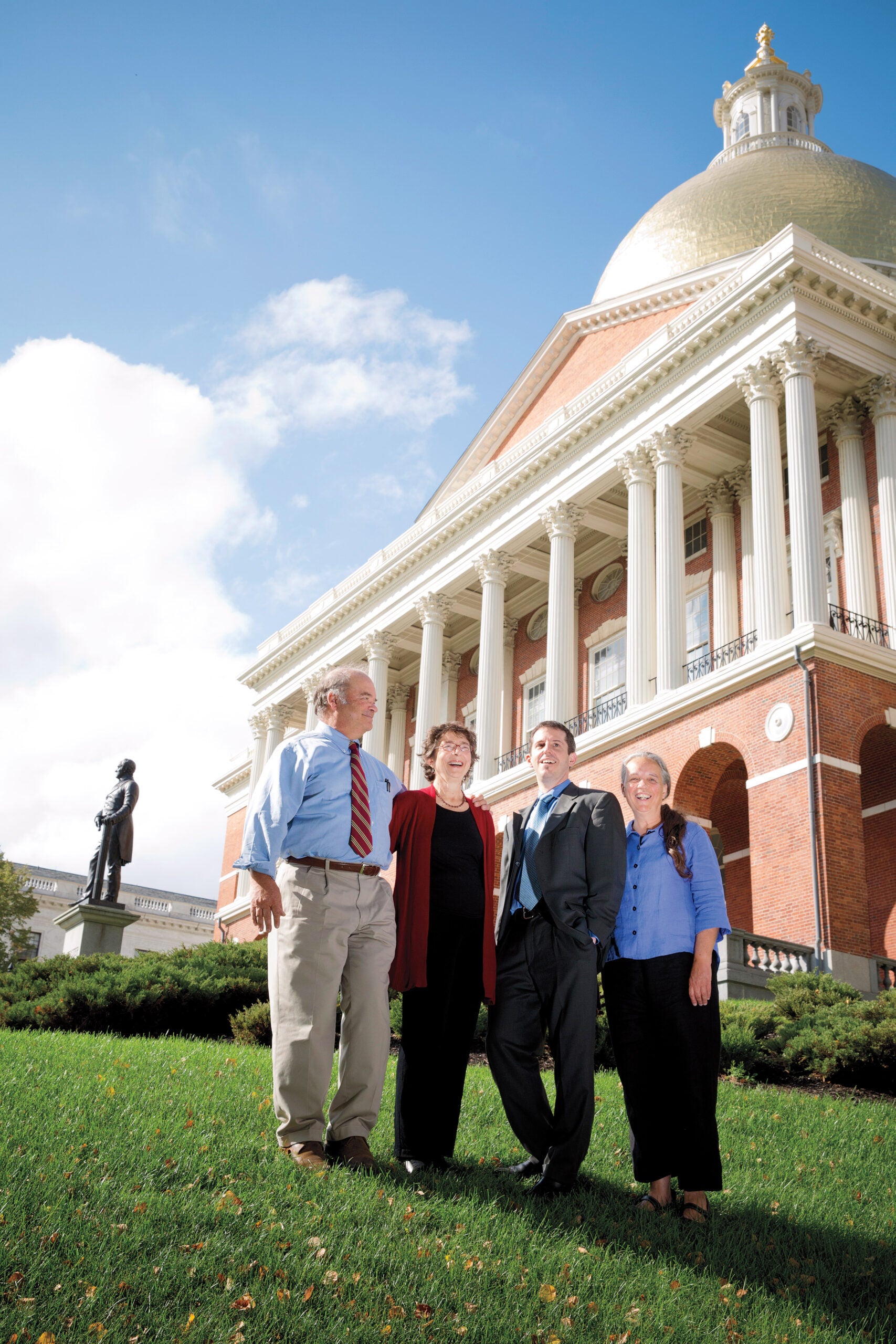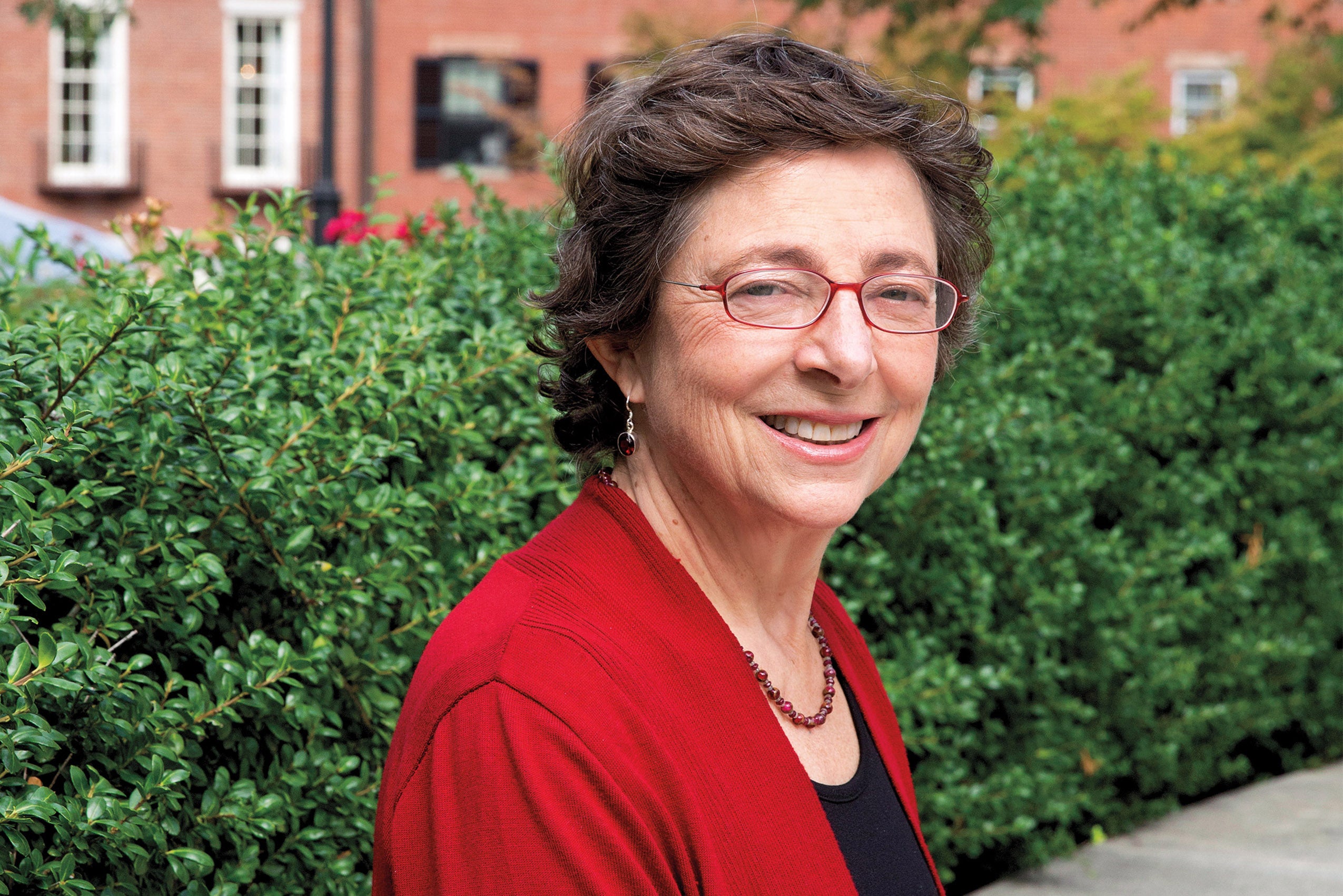Harvard Law School Lecturer on Law Susan Cole made it her life’s work to help schools and policymakers understand the impact of trauma on learning.
Cole — who died at her home in Cambridge, Mass., surrounded by family, on May 1 — helped pioneer an innovative approach to education reform to ensure that traumatized children have the opportunity to reach their full potential in a safe and supportive learning environment.
During her nearly two-decades long tenure at HLS, she helped establish the Trauma and Learning Policy Initiative, wrote landmark publications on creating trauma-sensitive schools and policies, and founded HLS’s Education Law Clinic, which has trained hundreds of students since its founding in 2004.
“Susan built a field that brought vital focus to the long-overlooked connection between trauma and the obstacles children face in securing the education they deserve and the opportunity to thrive,” said John F. Manning ’85, the Morgan and Helen Chu Dean and Professor of Law at HLS. “She prepared our students to be effective advocates not only through paths of litigation, but also through agency and legislative action.”
Beginning as a special education teacher in the 1970s, Cole pursued law as a way of improving education rights for marginalized children. She spent a lifetime practicing and teaching at the intersection of psychology, education, and law that links adverse childhood experiences to a host of learning, relational, and behavioral difficulties at school.
She earned a J.D. from Northeastern Law in 1981, and, in 1988, she joined Massachusetts Advocates for Children (MAC), which works to remove barriers to educational and life opportunities for children and youth. Advocacy by MAC’s founder Hubie Jones led to the first state special education laws in the country and served as the model for the federal Individuals with Disabilities Education Act.
In the early 1990s, after Massachusetts adopted a zero-tolerance policy for disciplinary issues in school, Cole and MAC attorneys found themselves coping with a wave of student expulsions and noticed a pattern of violence in the lives of many of the children, disproportionately students of color and students with disabilities, who had been expelled or suspended from school. At that same time, evidence was growing to show that children who had experienced or witnessed traumatic events were more at risk for adverse outcomes in school and through adulthood.
Cole joined Harvard Law School in January 2004 as a clinical instructor and launched the Trauma and Learning Policy Initiative (TLPI), as a collaboration between MAC and HLS. Cole, who remained a senior project director at MAC during her tenure at HLS, was described by MAC in a statement, as a “pillar” of their organization. “Today, MAC’s heart continues to beat, but it beats with a different rhythm than it did before this past Saturday. Susan’s powerful and multi-faceted support for the right of all children to a free and appropriate education are difficult to measure and will be irreplaceable.”
Cole’s contributions to the law, legal education, and children were similarly lionized by many of her Harvard Law School colleagues.
“When she was already an accomplished and passionate lawyer, Susan Cole sought out research — then brand-new — showing the impact of trauma on children’s learning and development and made this the basis for a whole new way to advocate for individuals and to improve whole school environments,” said former Harvard Law School Dean Martha Minow, the 300th Anniversary University Professor at Harvard. “With persistence matched by kindness, she and her collaborators trained law students and many others while successfully advancing policy reforms.”
During her first year at HLS, Cole also teamed up with Clinical Professor of Law Michael Gregory ’04, then a recent graduate and Skadden Fellow, to found the Education Law Clinic to teach students advocacy and litigation skills on behalf of vulnerable children.
Gregory, who taught and developed the Education Law Clinic with Cole for the past 17 years, said in statement in the Boston Globe: “Susan was a fierce advocate. She knew what her vision was, what her purpose was, and lived that in every minute of her life.”
Cole and Gregory co-wrote the landmark publications “Helping Traumatized Children Learn” (Vol. 1), which documents how trauma from exposure to violence can be the underlying cause of many learning and behavior problems, and “Creating and Advocating for Trauma-Sensitive Schools” (Vol. 2), which offers a guide to a process for creating trauma-sensitive schools and a policy agenda to help school districts achieve that goal.
Since the first volume was first published in 2005, the publications — which have been bought or downloaded more than 200,000 times and translated into several languages — have been go-to resources for educators, advocates, and parents across the country and the world.
In addition to helping individual students and families through the Education Law Clinic, Cole and Gregory sought to make inroads into the broader educational problems faced by many traumatized children and enact change at the state level.
In 2014, they launched a spring Education Law and Policy course, and related Legislative and Administrative Lawyering clinic — which focuses on how state government runs, how laws get passed and how the state budget process works — with the aim of engaging in systemic advocacy in education reform at the state level.
Through legislation, community organizing, research and writing, and media advocacy, they successfully encouraged the passage of the Safe and Supportive Schools framework, a law that provides schools with trainings, technical assistance, and a grant program to develop safe, inclusive, and healthy learning environments. The pioneering law, signed by then Gov. Deval Patrick ’82 in 2014, made Massachusetts a national leader in supporting trauma-sensitive schools and districts, and set the groundwork for a national movement to transform school communities.

In 2016, Cole launched a new externship clinic, placing law students in education law organizations and government agencies throughout Boston. In a seminar format, students use their disparate experiences at different externship sites to assess potential approaches to systemic change.
“Susan not only helped make a difference for many individuals, she created effective strategies that spurred needed change within entire schools, districts, and state education systems,” said Manning.
“Despite her untimely death,” Minow said, “her work, vision, and passion will inspire and endure.”
She is survived by her husband, David Eisen, her son, Ben Eisen, daughter-in-law, Emily Cohn, and a brother, Stuart Cole. Her family is planning a public memorial service in the late spring or summer.
Related Reading
“Susan Cole, pioneering advocate for traumatized children in schools, dies at 72” (Boston Globe)
“Lawyer Tried to Keep Traumatized Students in School” (Wall Street Journal)
